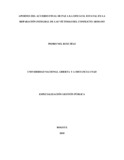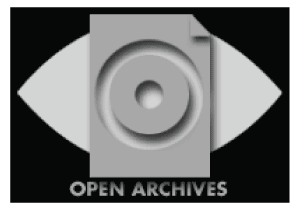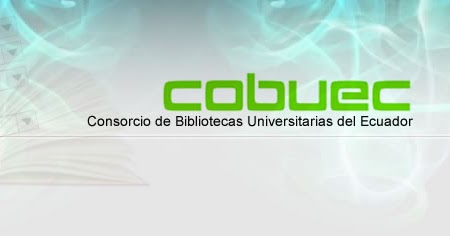Mostrar el registro sencillo del ítem
Aportes del acuerdo final de paz a la eficacia estatal en la reparación integral de las víctimas del conflicto armado
| dc.contributor.advisor | Carvajal Basto, Luis | |
| dc.coverage.spatial | cead_-_josé_celestino_mutis | spa |
| dc.creator | Ruiz Díaz, Pedro Nel | |
| dc.date.accessioned | 2018-08-08T22:46:26Z | |
| dc.date.available | 2018-08-08T22:46:26Z | |
| dc.date.created | 2018-07-24 | |
| dc.identifier.uri | https://repository.unad.edu.co/handle/10596/19362 | |
| dc.description.abstract | La guerra irregular en Colombia ha producido millones de víctimas en más de cinco décadas de confrontación. La eficacia de la acción de Estado en la reparación integral a las víctimas del conflicto armado es limitada, aunque se cuenta con un conjunto de herramientas jurídico-institucionales que constituyen una política pública orientada a tal objetivo. La firma del Acuerdo Final para la terminación de conflicto y la construcción de una paz estable y duradera, suscrito entre el gobierno de la República de Colombia y las Fuerzas Armadas Revolucionarias de Colombia – Ejército del Pueblo –FARC-EP- ha conllevado disminución en la ocurrencia de hechos de violencia, y la expresión de voluntad de las partes en aportar en la reparación integral. El Sistema Integral de Verdad, Justicia, Reparación y No Repetición – SIVJRNR acordado en el punto quinto del Acuerdo Final, ofrece el diseño arquitectónico institucional para la puesta en marcha de un sistema de justicia transicional con enfoque restaurativo. La implementación de este sistema supone su armonización con la política pública vigente y la transformación de algunos de sus lineamientos actuales. Este trabajo tiene como objetivo identificar aspectos del SIVJRNR que potencian la eficacia del Estado colombiano en la atención y reparación integral de las víctimas del conflicto armado. | spa |
| dc.format | spa | |
| dc.format.mimetype | application/pdf | spa |
| dc.language.iso | spa | spa |
| dc.publisher | Universidad Nacional Abierta y a Distancia UNAD | spa |
| dc.title | Aportes del acuerdo final de paz a la eficacia estatal en la reparación integral de las víctimas del conflicto armado | spa |
| dc.type | Monografia | spa |
| dc.subject.keywords | Eficacia estatal | spa |
| dc.subject.keywords | Justicia transicional | spa |
| dc.subject.keywords | Guerra irregular | spa |
| dc.description.abstractenglish | The irregular war in Colombia has produced millions of victims in more than five decades of confrontation. The effectiveness of the State's action in the integral reparation to the victims of the armed conflict is limited although there is a set of legal-institutional tools that constitute a public policy oriented to that objective. The signing of the Final Agreement for the termination of the conflict and the construction of a stable and lasting peace, signed between the government of the Republic of Colombia and the Revolutionary Armed Forces of Colombia - People's Army -FARC-EP- has led to a decrease in the occurrence of acts of violence, and the expression of willingness of the parties to contribute in comprehensive reparation. The Integral System of Truth, Justice, Reparation and Non-Repetition - SIVJRNR agreed in the fifth point of the Final Agreement, offers the institutional architectural design for the implementation of a system of transitional justice with a restorative approach. The implementation of this system supposes its harmonization with the current public policy and the transformation of some of its current guidelines. The objective of this work is to identify aspects of the SIVJRNR that enhance the effectiveness of the Colombian State in the integral attention and reparation of the victims of the armed conflict. | spa |
| dc.subject.category | Gestión pública | spa |
| dc.rights.accesRights | info:eu-repo/semantics/openAccess | spa |
| dc.rights.acceso | Abierto (Texto Completo) | spa |















